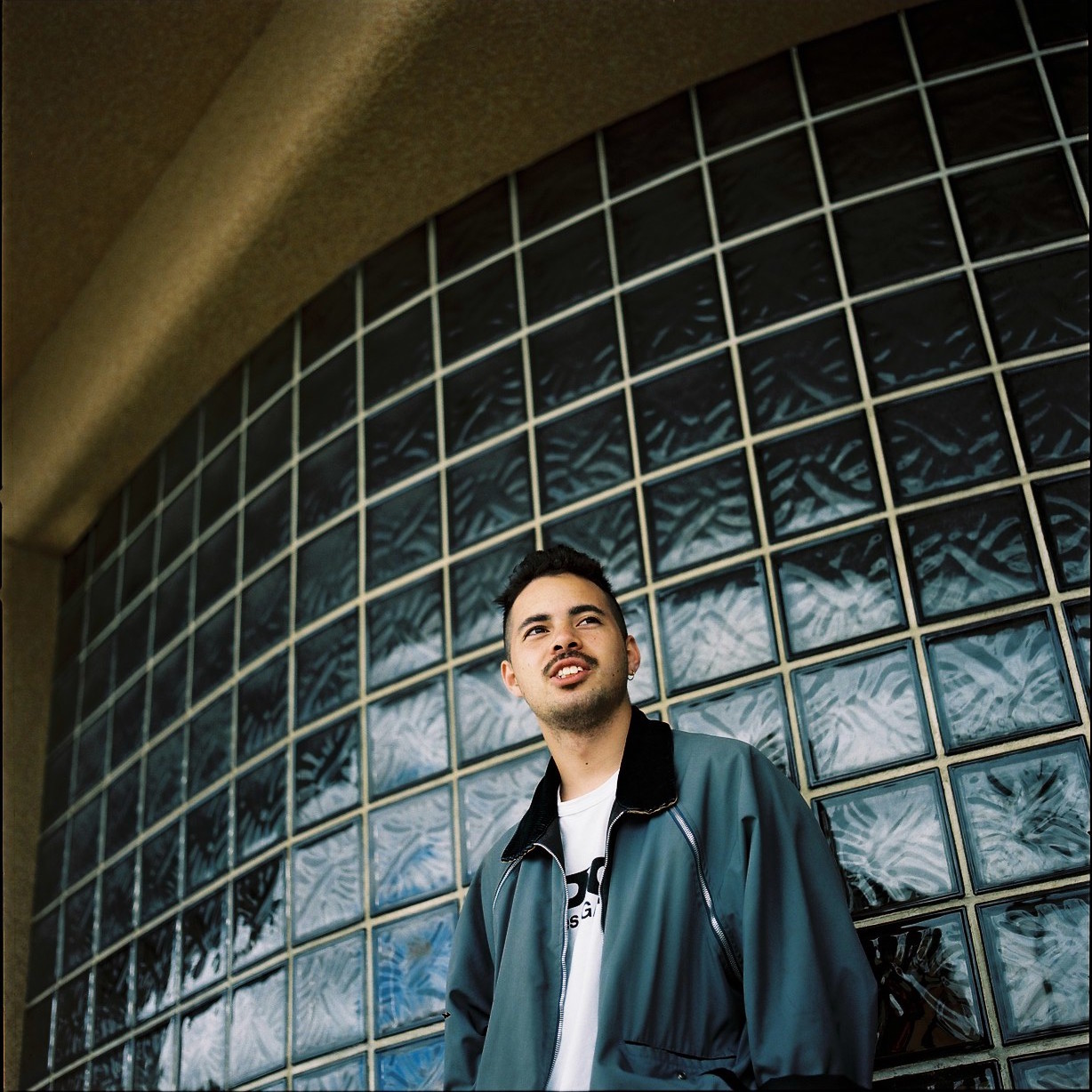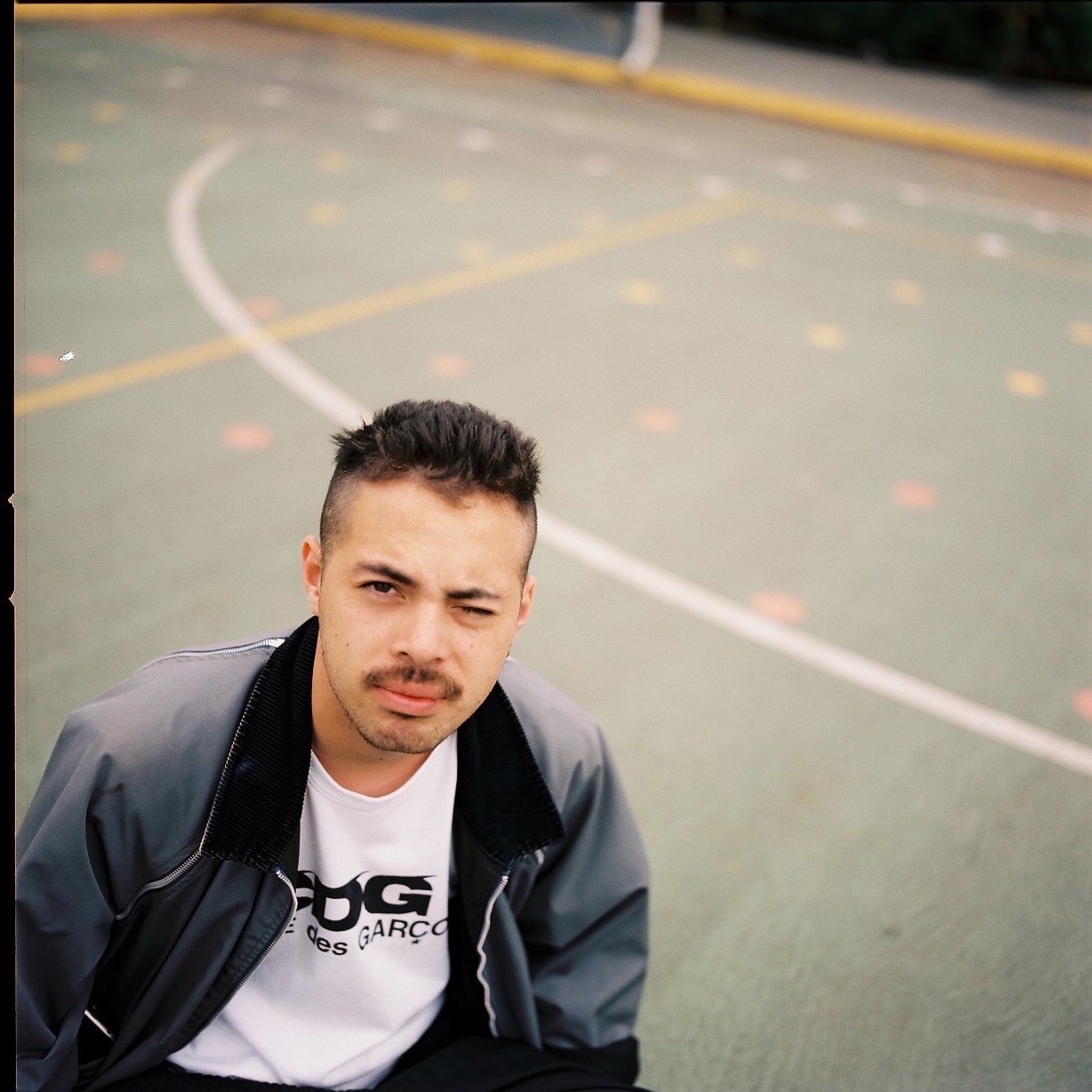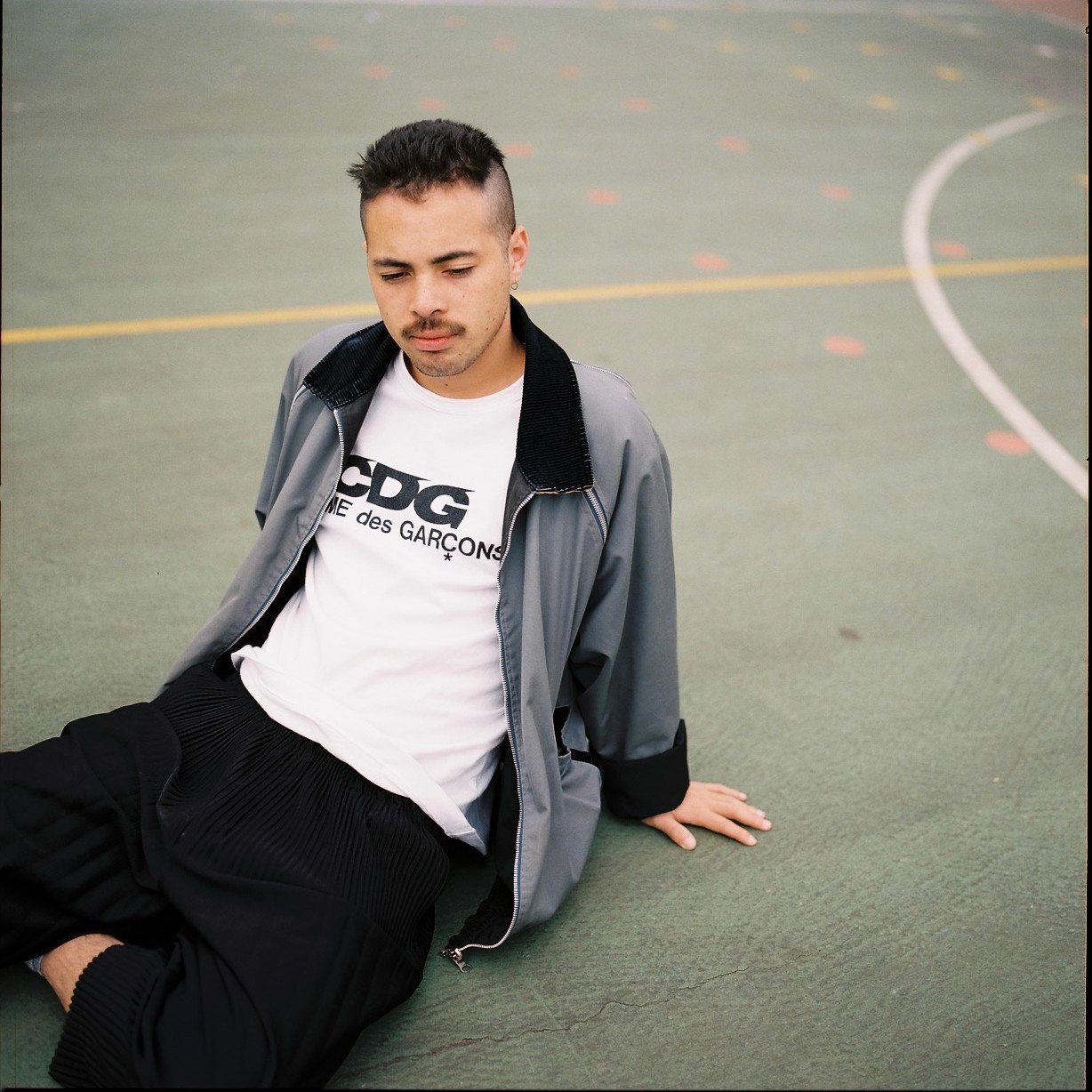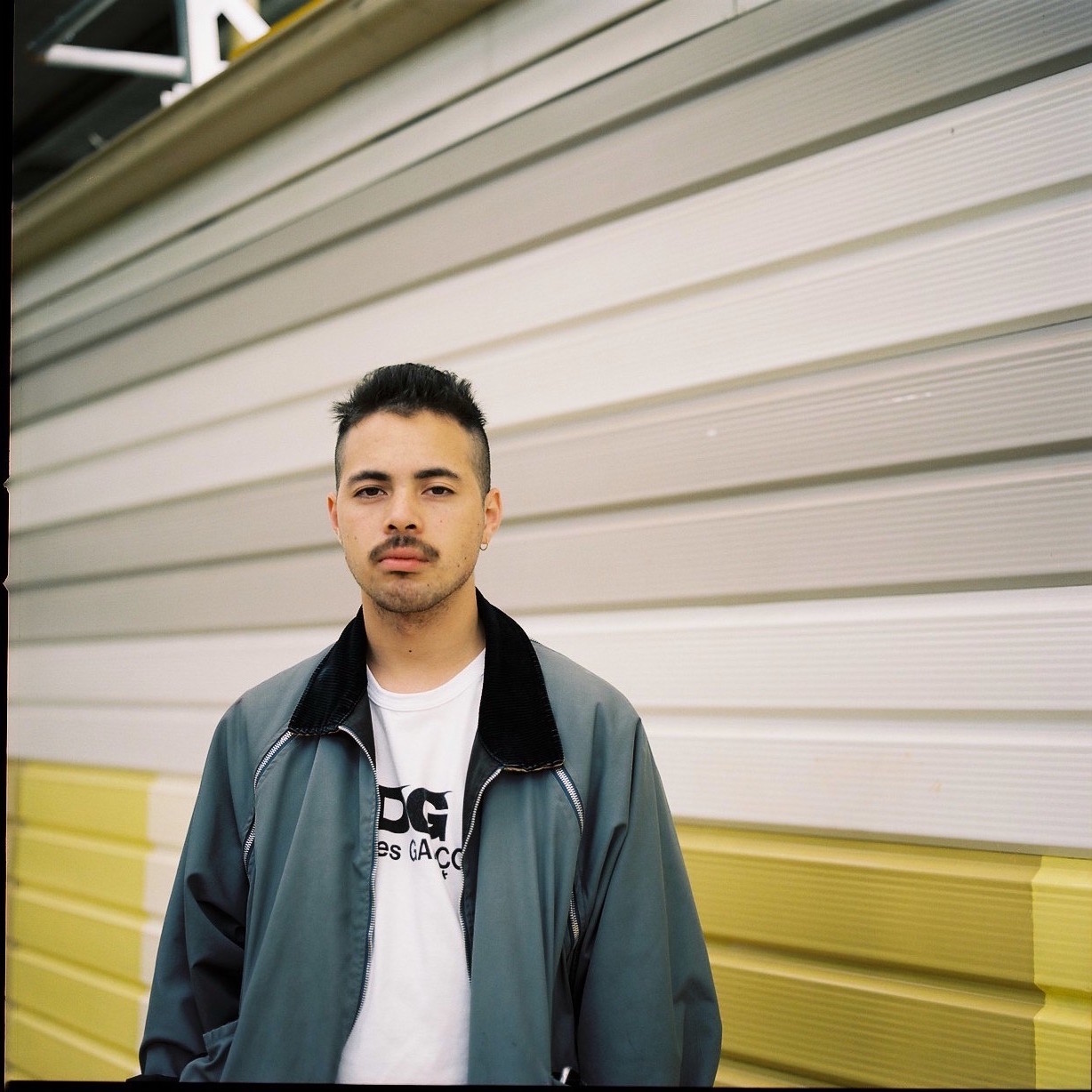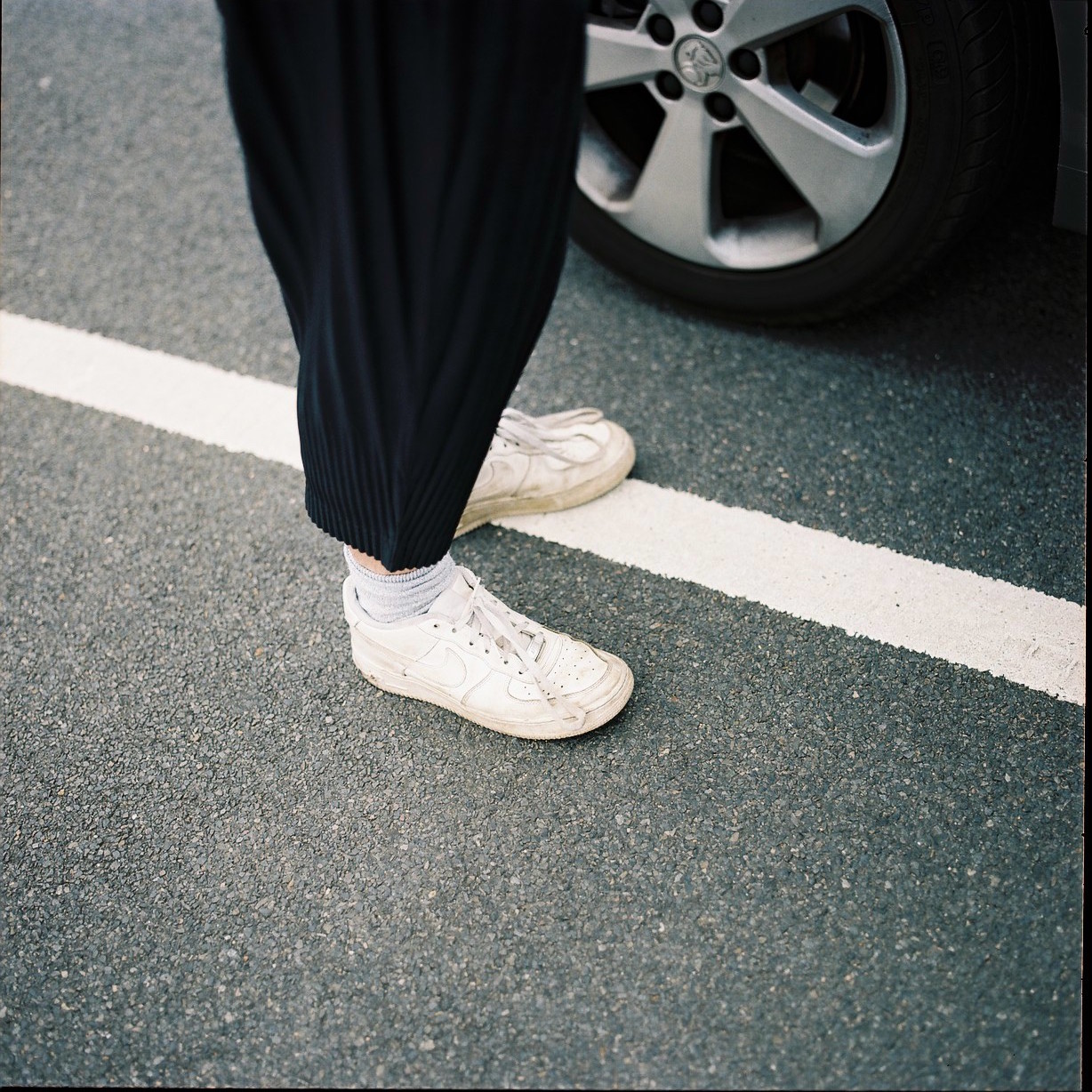Interview #2 — James J. Robinson
by Leah Jing McIntosh
James spoke to Leah Jing McIntosh about tokenisation in the Australian fashion industry, 'white-passing', and creating worlds which transcend oppression.
Find our excerpt of James' latest publication, After Hours, here.
How did you become interested in photography?
I don’t really know...I remember playing with my dad’s old film camera in high school. I started shooting film so much that it became a point of difference between me and other photographers. Even then, photography became an entry point into filmmaking for me—I see filmmaking is my main medium, with my photographic work an extension of it.
It seems you’re one of the few Melbourne photographers who predominantly uses Asian models for their personal work.
When I began working on my photobook, After Hours, I was shooting in Tokyo and Seoul. Because I had cast everyone there, I didn’t really think twice about it. It was only when I returned to Australia that I decided to continue this trend of only casting people of colour.
Can you tell us about your latest project, Apollo Health Club?
Yeah, I just finished it! It was a film I had to make for my uni course. Apollo Health Club is about a girl who works at an all-female health club in the mid-90s. What it was trying to do on a sub-textual level was to engage with the idea that there are women of all kinds of different colours, and women who aren’t cis-women, and this gym represents a kind of a safe space for all of them, away from the gaze of the patriarchy. But then the main character finds a hidden camera set up in the locker rooms. The camera represents the masculine invasion of the female space, symbolic not only of the ‘patriarchy’, but also me as a male director impeding myself in a female space…
It was so awkward when I was pitching my film to the class. You could tell everyone was getting so uncomfortable because none of them had casted anyone of colour—mine was the only film to have a person of colour in a lead role. And I was like, ‘what the fuck?’
Are you serious?
Yeah, it was fucked. I had this impression that the film industry was changing—for instance, whenever a film is whitewashed there’s so much controversy, people are talking about it. So I expected that people at Swinburne would be switched on, that they’d understand and respond to the discussions around diversity and representation. But every short film I see, every Australian-produced media, it's so… like, television is fucked. Any time there’s an Asian character there’s this implicit sense of ‘why are they here? Why are they Asian?’ And there has to be some reason why this character is Asian; they can’t be a regular character who also just happens to be Asian.
What I hate is when people say, ‘it doesn’t really, you know, suit our story.' I'm like, ‘how does it not suit your story?’ But I guess it’s a major part of being a person of colour in Australia. As in, I’m here in Australia just like anyone else, you know? I exist. But then again, I also I benefit a lot from white passing privilege.
Has this kind of erasure impacted your experience of the Australian fashion industry?
I feel that people of color are very tokenised in the industry. I have some horror stories. For instance, this French magazine UmnO interviewed me, and the interviewer said to me: ‘oh my god, I hate casting people of colour, I just feel like so obliged to it these days.’ He just said it off the record, when we were shooting, in very much an ‘oh no, I didn’t mean it in, like, a racist way…’
I have another story related to the fashion industry’s strange relationship with race. There was a stylist that I worked with on a really tiny corporate shoot in Melbourne, and she asked afterwards if we could work together again, so I told her to send over some concepts. But over Halloween, she posted a photo online in blackface. I suppose, for her, it was a bit of a grey area, because she was dressed up as Harambe, but she still went through the process of applying the black makeup all over her face. I asked my friends ‘do you still find this offensive?’ and they’re like ‘very much so. In fact, it becomes more offensive because it likens us to an animal.’
So I stopped responding to her messages, I decided that I wasn’t going to preach to her or whatever. But then she persisted, so I sent her a message saying ‘look, as much as I would like to work with you, I’m not comfortable working with anyone who thinks blackface is okay in any context. Especially as I’m a person of colour, and my work is kind've an attempt to dismantle those kind of oppressive power structures that you are currently feeding into.'
She responded with the typical 'oh, I don’t really see the issue with it, I mean, I’ve got lots of black friends…' Which is, woah. Is this actually what the industry is like?
I just don’t really see any PoC in the industry in a way that isn’t tokenised.
Earlier you mentioned how, as a mixed-race Asian, you pass as white. This is also known as ‘white-passing’, which, to explain to our readers, is when people around you presume you’re white, when you’re not.
I went to a pretty racist high school. I understood oppression from a young age and saw it firsthand. Even if it wasn’t directed at me as much as it was to other POC around me, I still found it very formative. I experienced so many micro-aggressions. I’d hear little racist things said about Asians because people didn’t see me as Asian. I would just be sitting there wondering if I should call them out. But then usually it’s not fucking worth it.
To be honest, I was pretty ashamed to be half-Asian growing up… how fucked is that? And it’s fucked because every single person I know who grew up Asian in Australia has felt the same thing. Any person of colour, at some point has wished that. Which is fucked.
Do you have any advice for emerging Asian-Australian artists?
When I was growing up, all the media I consumed was white, so my idea of art was very white. Growing up, seeing films, watching television...I just felt like oh this is what art is, it’s white things. And I accepted that at a young age, and I expected that was what my own work should be like. When I first started photography I was casting white people all the time.
You shouldn’t be ashamed to express your own self, because the second you start trying to be something different is when your work becomes inauthentic and you distance yourself from what you’re making.
If you’re struggling with being victimised or oppressed, take that and turn it into art. You can take it and re-appropriate it into something that is empowering for you. I think coming from a place of oppression provides you with a perspective that people who possess privileged people don’t have. It inspires you to be creative. Because you’re ostracised and ‘Othered’ for being different, you’re forced into adopting a position of owning that sense of difference rather than try to conform.
I feel things are changing because a lot more PoC are being noticed in creative fields. There a shift, but there’s also just that question of — is racism ever going to disappear? There’s always going to be some system of hierarchy. But maybe we can invert the hierarchy.
There has been a huge and thrilling rise of PoC artists lately.
Because everyone can express their opinions, you can witness so much racism on the internet. I disable comments on YouTube because every time I watch a video I can’t deal. Yet at the same time, I don’t think I would be as conscious of oppression if I wasn’t on Tumblr, which is like a little bit embarrassing to say but also, I think Tumblr specifically was a major thing for a lot of people of colour and queer people and non-binary people...there was finally a platform that everyone could share. Tumblr is really good because it is so supportive.
Spaces like Tumblr aren't tied to a specific place, allowing the construction of a supportive network outside nationality. The internet has become both a place that lies beyond, yet makes up the fabric of our daily reality. Has this impacted your aesthetic directly?
I think it also comes back to what I was saying before about my work: trying to exist in a place outside of a world of oppression. In part I’m just trying to make an idealised world in my work, one that exists above oppression. Everything in the films that I make, it exists in this world in my mind, where there isn’t oppression. My work is very visual, I’m very specific about lighting and mood and setting tones. I always try to make it look like it exists in a world that is beautiful.
Do you have any favourite artists who you draw inspiration from?
I draw inspiration from all kinds of artists in different fields. It’s interesting because I’d say poetry informs my work more than other visual mediums. Perhaps it’s because the poet is creating an image through words, which I can interpret my own way. In terms of photography, I really look up to Wing Shya and my friend Thy Tran. Wing Shya’s work feels so cathartic – it has the same kind of emotional complexity that I try to show in my work, while Thy just makes me rethink conventions in colour, posing and composition. Since my main medium is filmmaking, my favourite directors are Hirokazu Koreeda, Yasujiro Ozu and Wong Kar Wai.
What are you currently listening to?
I’m a bit late to the game but Skepta’s album Konnichiwa is so good! I’ve also been listening to a lot of Kevin Abstract, he writes music from a queer black perspective in a really honest way – plus he’s so young! His music speaks about queerness in a way that I kind of wish Frank Ocean did a little more.
What you currently reading?
I’m in the middle of two books, Haruki Murakami’s Norwegian Wood and Yeonmi Park’s In Order to Live. I only read my first Murakami novel, Kafka by the Shore, earlier this year and it quickly became my favourite book. Yeonmi Park’s book is an autobiography about her life as a North Korean defector – it’s really heavy but gives a unique insight into the way North Korea operates.
And, finally: what does being Asian-Australian mean to you?
Asian-Australian identity is so complex, I don’t know how to define it! There’s such a responsibility in this country for us to be visible considering the White Australia Policy and the problematic history this country has. To me it’s about deconstructing stereotypes and making Asian faces more visible in the media in a way that’s not tokenised. But that being said, I also recognise the necessity of placing the needs of our Indigenous population over our own. We live and work on borrowed land and I think it’s important to know when to step aside and let other people speak about their issue.
For me, being Asian-Australian is about intersectionality; supporting all kinds of genders, sexualities, races, disabilities, socio-economic groups within the struggle against oppression.
Find out more
Interview & photography by Leah Jing McIntosh

